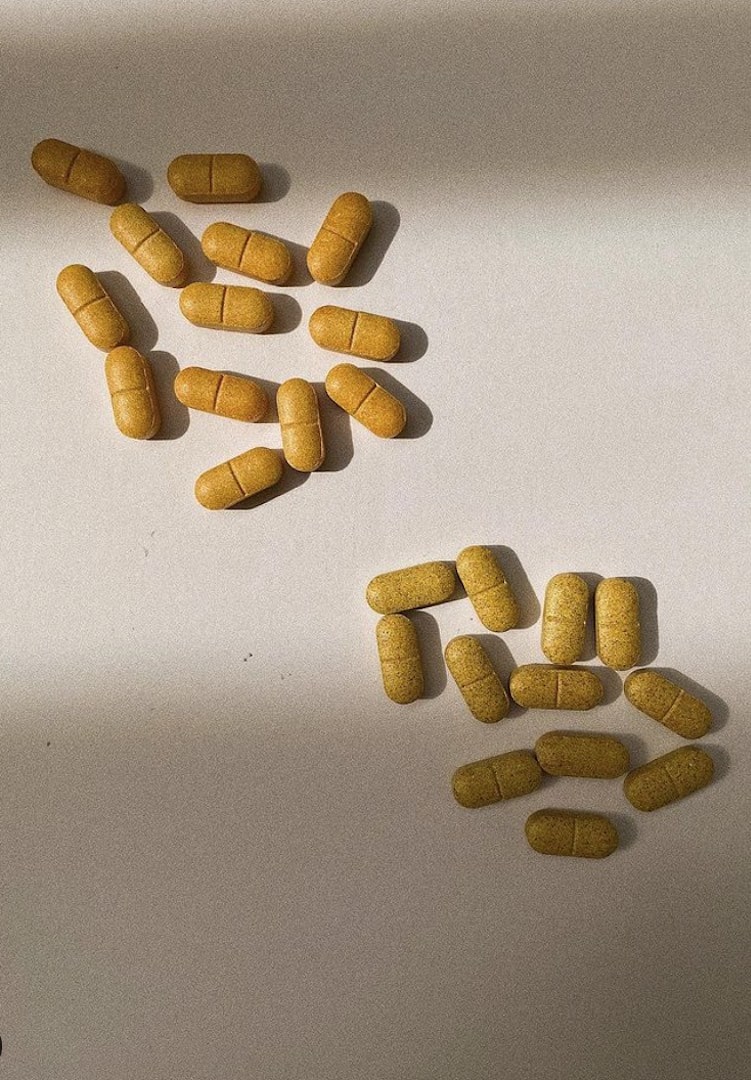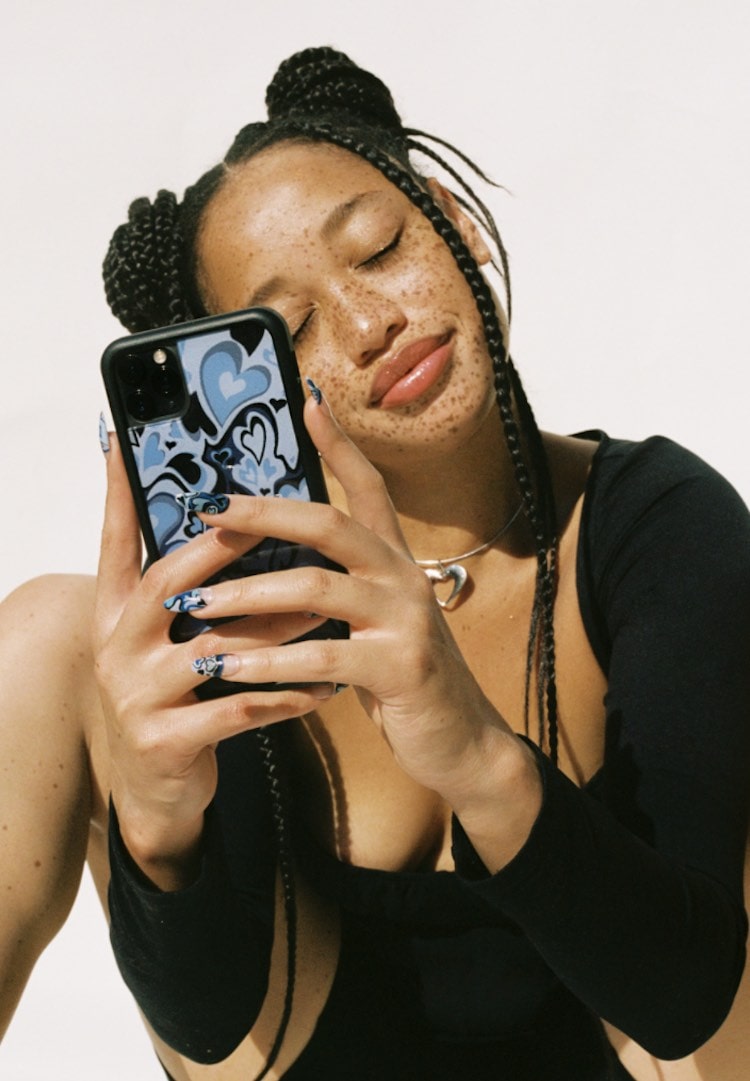Going back on antidepressants shouldn’t make you feel like a failure, here’s why
IMAGE VIA @MUNGBEAN_HEALTH/INSTAGRAM
WORDS BY SARAH ROWE
“It didn’t even occur to me that perhaps the reason I felt so ready to come off my medication was that it was working so efficiently.”
It was a possum – not the proverbial straw – that broke the camel’s back. 8am on a wintry Melbourne Saturday. Freezing, I pulled on a beanie, strapped my greyhound, Millie, into her harness and set out for our morning walk. There, in the tiny grassy patch of my front yard, was a possum.
It was dead. Very dead. Insides-on-the-outside dead. Millie didn’t seem all that interested, thankfully (she is most undog-like in some ways). I, on the other hand, was having to remind myself to breathe.
For more personal essays, tap through to our Life section.
As we walked, I began to feel shaky and teary. Millie, entuned to the minutiae of my emotional state, began to stall and freeze. Her stalling made me more unsettled, which made her stall more, which made me regret ever leaving the house. I considered calling my mum, but it was barely 8.30am, and it was a Saturday. I decided to wait till at least 9am.
Finding a dead possum in one’s yard is unsettling, but somewhat par for the course in Victoria (as my mum reassured me, she’d had to place a possum in the bin plenty of times. My colleagues at work said the same when I divulged my morning discovery).
Unpleasant? Yes. Worthy of a nervous breakdown? Perhaps not. My disproportionate reaction – crying, struggling to breathe, heart-racing – was a telltale sign that I was not coping. It was a sign that perhaps I needed to go back on Lexparo.
I had ceased taking Lexapro, an SSRI that had been prescribed to me for major depression, about a month prior to the possum incident. I had been on it for about seven years before that. Tapering off Lexparo had been one of the more unpleasant experiences of my life, to put it lightly. I had felt shaky, dizzy and nauseous.
I experienced ‘brain shocks‘, the feeling that my brain was shuddering or that someone was shaking my skull like a snow globe, making everything fuzzy and blurred. I was sweaty, tired and achy. I pushed through, hoping it would all be worth it on the other side.
In the first few weeks of being completely medication free, I felt great. I was full of energy, running around, catching up with friends, boasting about my new medication-free life and how good I felt. My libido was through the roof, and the sex I was having was better than ever before.
I felt like an exposed nerve ending – everything was raw and tingly. It did occur to me that this manic rush of energy could be a symptom of underlying anxiety, but I was too proud to really admit that to myself, much less anyone else.
The initial euphoria eventually gave way to periods of extreme lowness. I would cry for hours, unsure why, or become intensely fixated on mundane trivialities like which shampoo I should be using or which colour bedspread to purchase. I had assignments due for university that I simply felt incapable of doing. This was rare for me.
I had always been a very diligent student, and more than that had actually enjoyed writing essays. But all of a sudden it seemed impossible. I would start to write a sentence, or draw out an essay plan, only to become lost and confused and end up in tears, wondering how I’d ever start, let alone finish, such an overwhelming task.
I would cry into a blank Word doc before giving up and crawling back to bed. I felt completely hopeless and unable to organise my own brain. I was falling back into the darkness of depression. It was terrifying.
I began to question why I had decided to forfeit my medication in the first place. I had believed that, after seven years of medication and therapy, I was ‘fixed’, that I was worlds away from the angsty teen I had been when I started taking antidepressants. I was different now, older, more mature, better equipped to manage the curveballs of life.
It didn’t even occur to me that perhaps the reason I felt so ready to come off my medication was that it was working so efficiently. In the time I’d been on Lexapro, I had completed an undergraduate degree, worked as an assistant to a barrister and become a published writer.
Lexapro allowed the space for my brain to function well, to think clearly and analyse sharply. It allowed me to read, write and form opinions. It allowed me to see through the fog of depression and gave me a sense of hope.
It occurred to me that I was making my life more difficult, and for what? To appear ‘strong’? To prove a point about my capability? Wasn’t I always encouraging those around me to be vulnerable, by insisting that vulnerability was the key to real connection and authenticity? And yet here I was, pretending I was ‘fine’ and capable, when really, I was flailing and falling apart.
Those who knew me well – my mum, close friends, Millie – seemed to recognise this. My mum was audibly relieved when I phoned to tell her I had made an appointment with my psychiatrist to discuss going back on my meds. Close friends told me I seemed more stressed than usual. And Millie seemed to sense something was off, becoming more anxious herself, regressing to old behaviours like freezing on walks and crying.
I’ve started back on Lexapro. I still feel conflicted – part of me is relieved, knowing the fog of depression will lift soon enough. Part of me is disappointed that I couldn’t do it alone. But I know that the disappointment is borne from a place of shame and stigma, which is something that I am actively working through. I also know that the depression, as sticky and heavy as it feels when I’m in it, will shift and move.
And if Lexapro facilitates that process, then why not take it? I am learning that I shouldn’t feel ashamed or guilty for taking medication, just as I don’t feel guilty for using other strategies, like chatting with friends, spending time with Millie or seeing a therapist. I don’t know how my depression will look in a few years’ time. But I do know that it’s okay to seek help when I need it. And it’s okay for you, too.
If you or someone you know is dealing with depression or anxiety, Beyond Blue is a great resource to try.













